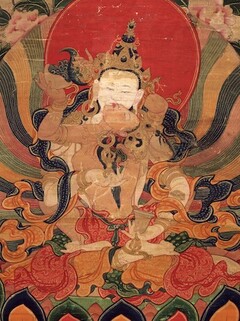Confession Series
English (31) | Deutsch (8) | Español (6) | Français (9) | Português (1) | Italiano (3) | Nederlands (1) | 中文 (2) | བོད་ཡིག (31)
Lotsawa House presents the following texts related to the practice of confession (bshags pa):
Canonical Works
by
Śāntideva
Commentaries
by
Jigme Lingpa
Outlines
Practices
by
Aśvaghoṣa
by
Jigme Lingpa
by
Karma Chakme
by
Karma Chakme
